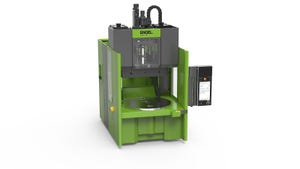Shortage in protective gear as Ebola spreads
The Ebola outbreak in western Africa has created a surge in demand for personal protective equipment (PPE), the polyethyelene-fiber-reinforced head-to-toe gear that healthcare workers wear to protect themselves from the virus, reports National Public Radio.
October 7, 2014
The Ebola outbreak in western Africa has created a surge in demand for personal protective equipment (PPE), the polyethyelene-fiber-reinforced head-to-toe gear that healthcare workers wear to protect themselves from the virus, reports National Public Radio. DuPont, which makes the Tychem C protective suit and Tyvek garments, recently tripled production of its products, according to NPR, and Kimberly-Clark, which provides Kleenguard protective clothing, isn't far behind.
The World Health Organization plans to send about 400,000 PPEs to West Africa, and 3M reportedly anticipates sending as many as 500,000 a month. Many other organizations are sending equipment, as well. Right now, though, PPEs are in short supply because clinics in West Africa can go through hundreds in a single day, reports NPR's Jackie Northam. As the virus spreads exponentially, that number also will rise.
Time has posted an informative video on precisely how doctors in African clinics suit up, item by item, to protect themselves from the Ebola virus. It's narrated by Dr. William Fischer of the University of North Carolina Chapel Hill, who was deployed to Guinea by the World Health Organization to help with the Ebola outbreak. When it's 115 degrees outside and you're pouring sweat by the liter, these suits can be incredibly sweltering and uncomfortable, notes the video.
The burden that current PPE's place on healthcare workers has not gone unnoticed by the U.S. Agency for International Development (USAID), which has launched a $5 million challenge to solicit ideas for cooler, more breathable clothing that still adequately protects healthcare workers.
DuPont and Kimberly-Clark are on board with the project, reports the Seattle Times, so new designs can be put into production within weeks or months. "Obviously, time is everything," says USAID Director Dr. Rajiv Shah. "We really need better solutions to protect healthcare workers."
Materials engineers take note: Proposals for the Ebola challenge program can be submitted through the USAID website.
About the Author(s)
You May Also Like




